In late October, The New York Times published a splashy feature article by opinion writer Bret Stephens titled “Yes, Greenland’s ice is melting, but…”. In this 6,000-word piece inspired by a trip to Greenland, Stephens shares his story of conversion from climate denial to climate concern.
At least, purportedly. The piece has been widely criticized by climate advocates and climate journalists for its soft denialism and the over-certainty about solutions often displayed by those new to the climate conversation.
The piece frustrated me, too, so I turned to a technique beloved by poets who want to critique or reverse the meaning of a piece of writing: the blackout or erasure poem. In this form the poet redacts all but a select few words from an existing text to create an entirely new work.
At the basest level, it’s pretty satisfying to take the digital version of a black Sharpie to a piece of writing that annoys you! But I also liked how the concept of erasure echoes the losses (of ice, and so many other things) associated with climate change, and how the black on the page reminded me of the black carbon that falls on Arctic ice. Here are the results below:
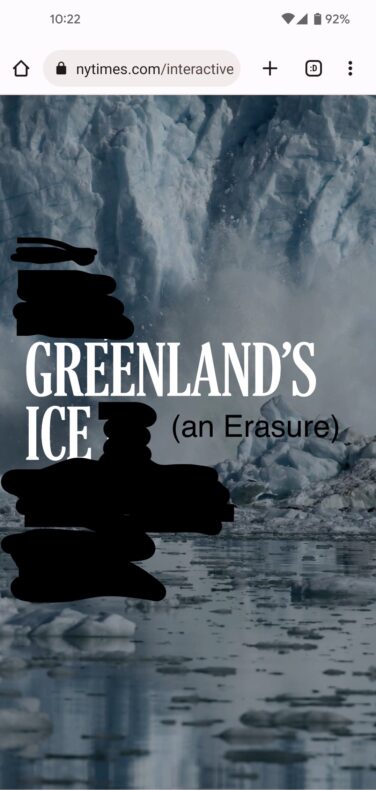
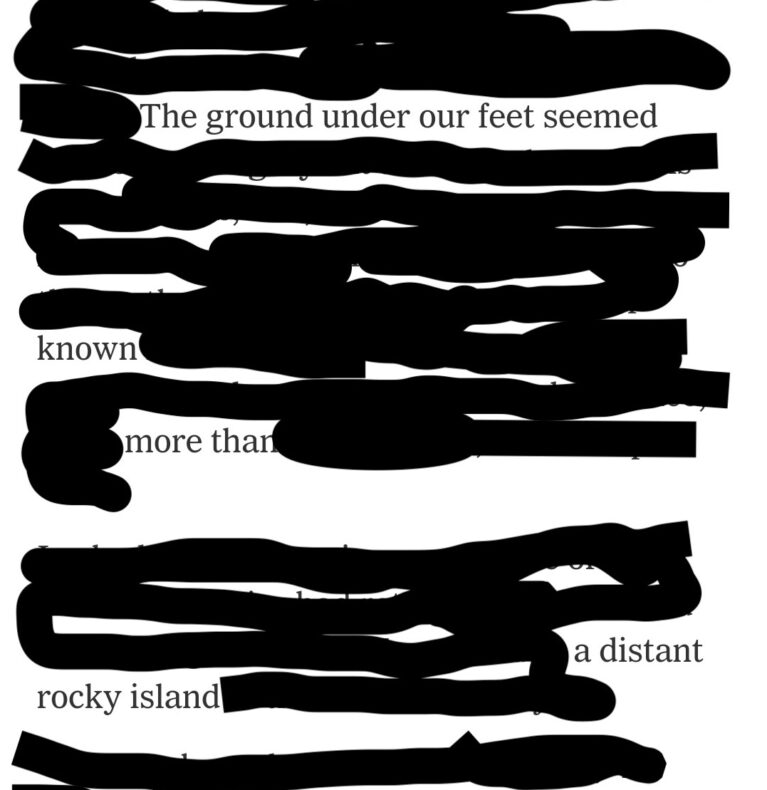
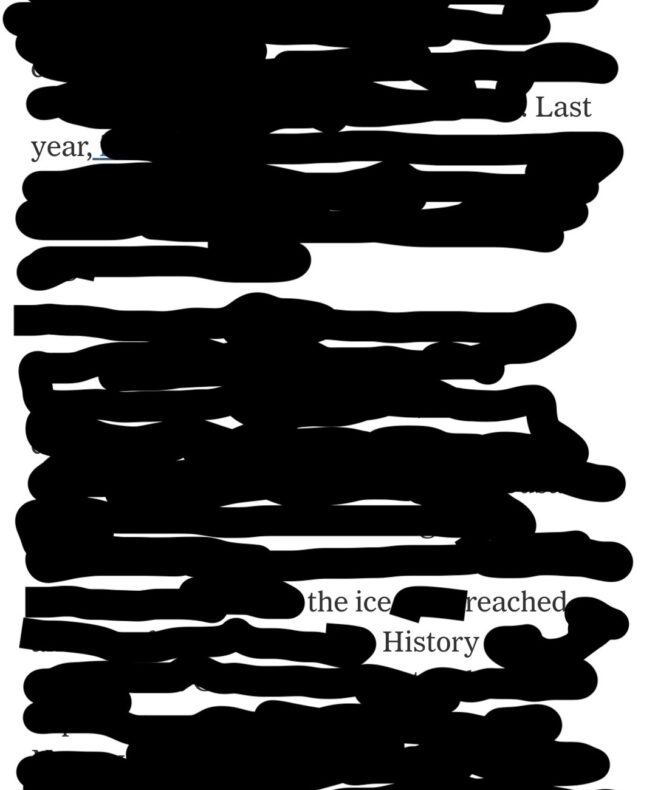
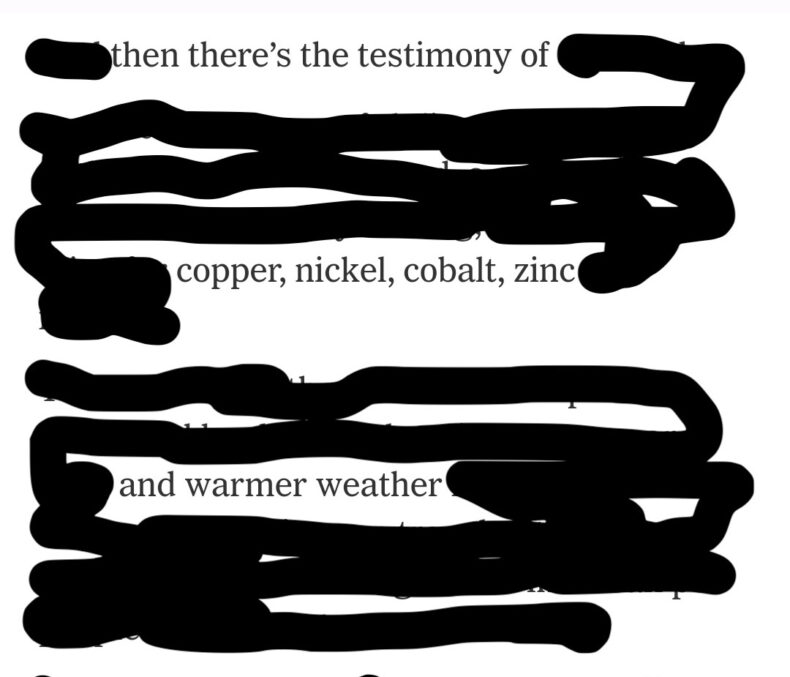
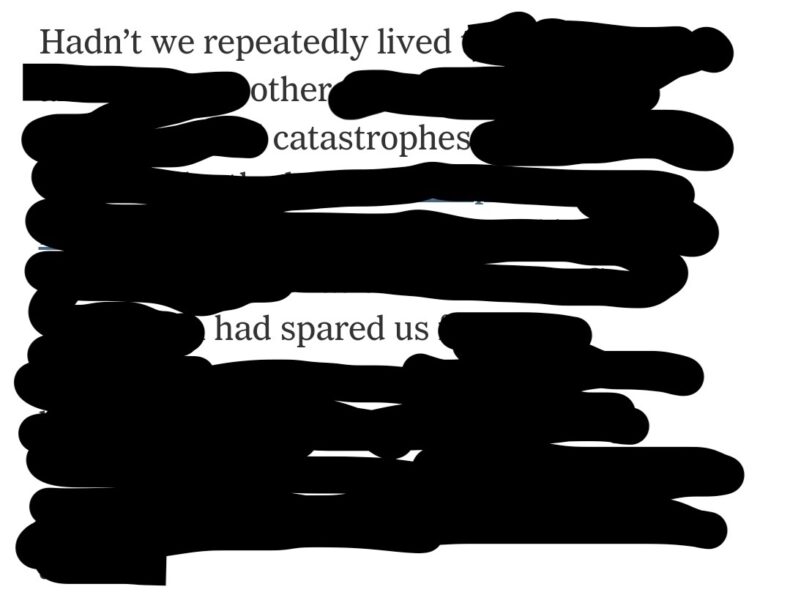
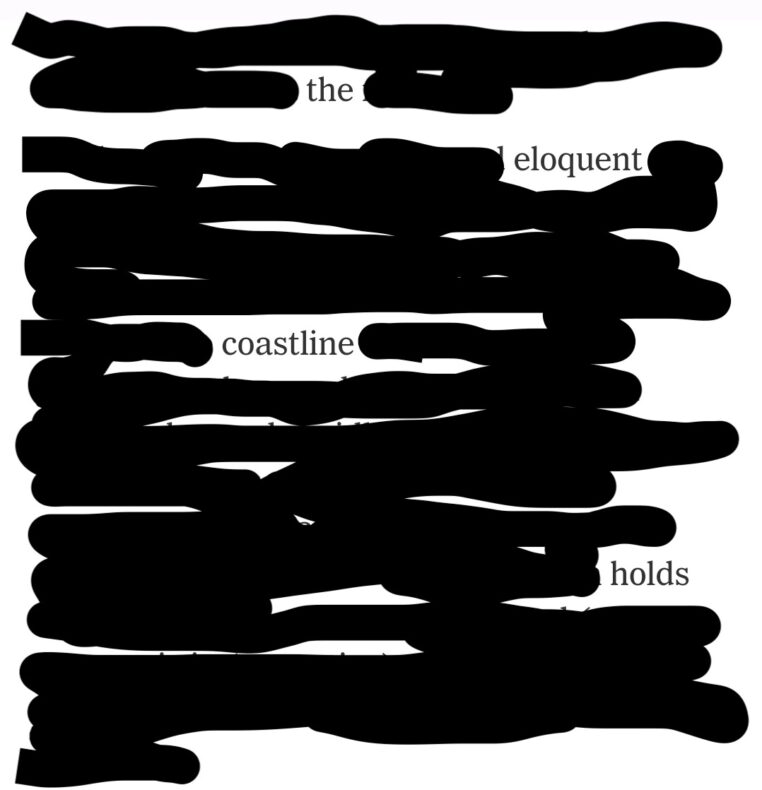
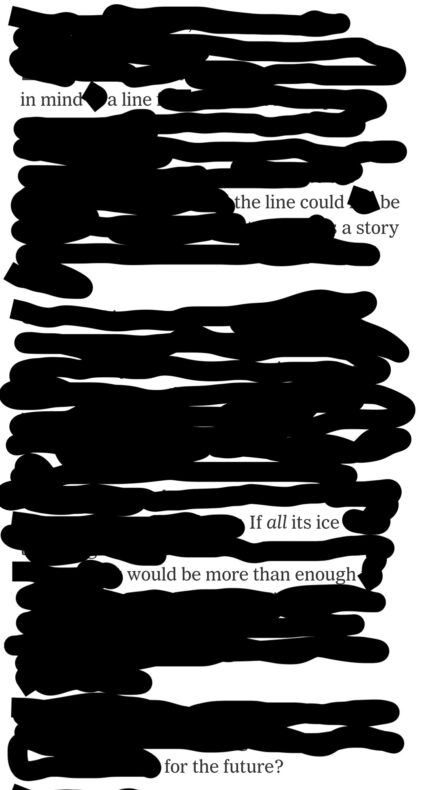
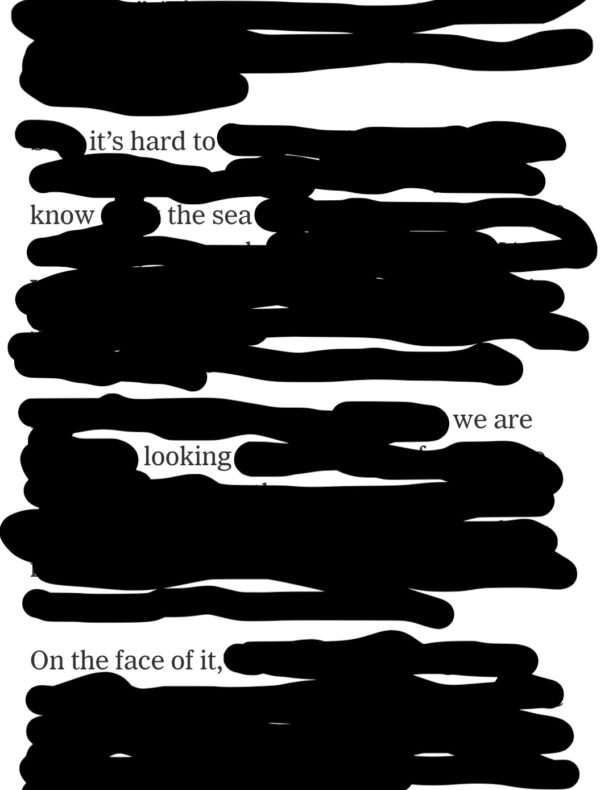
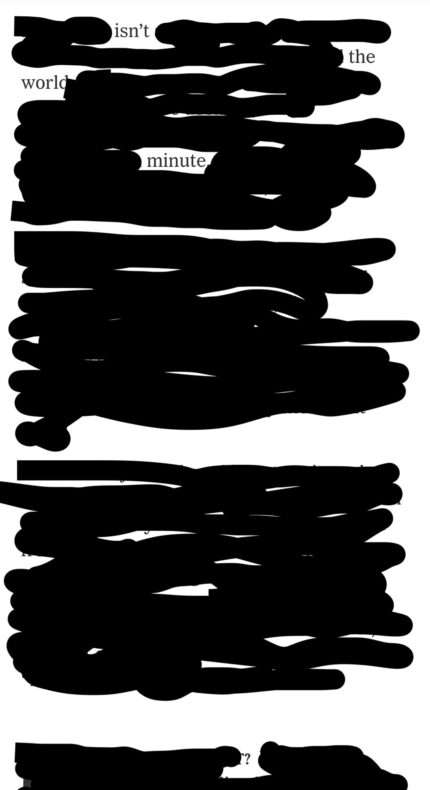
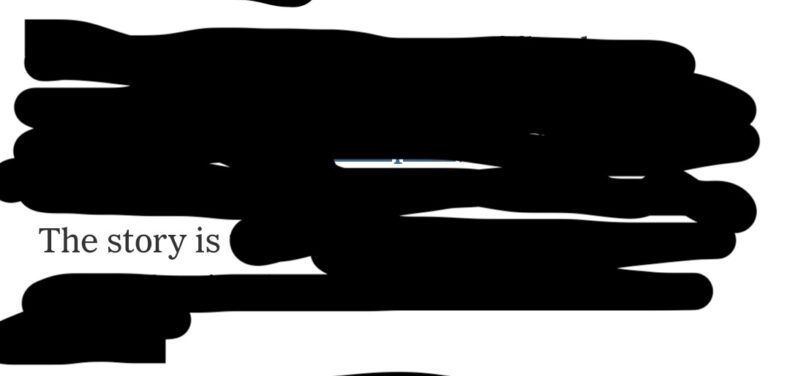
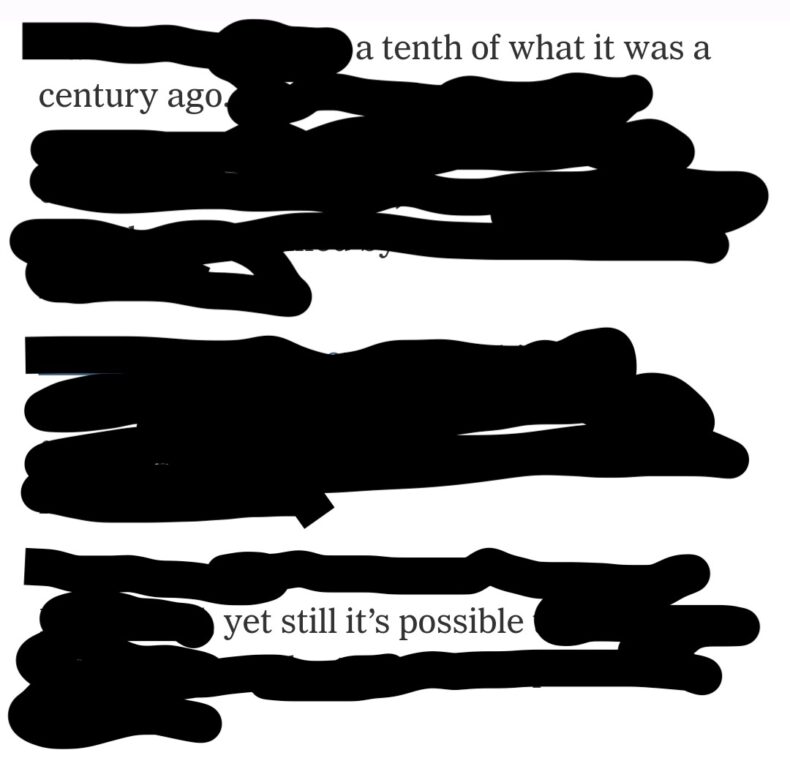
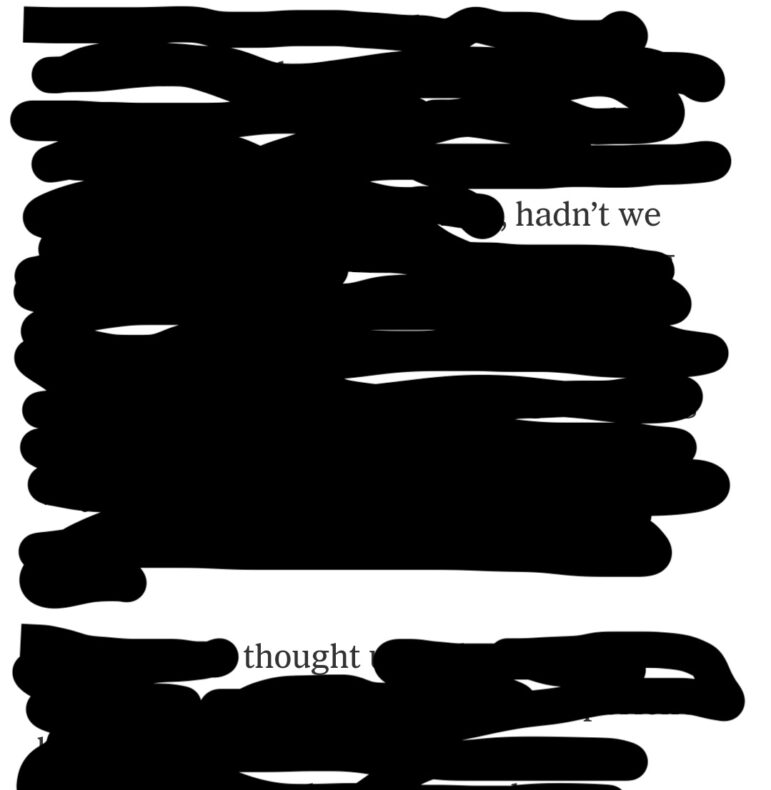
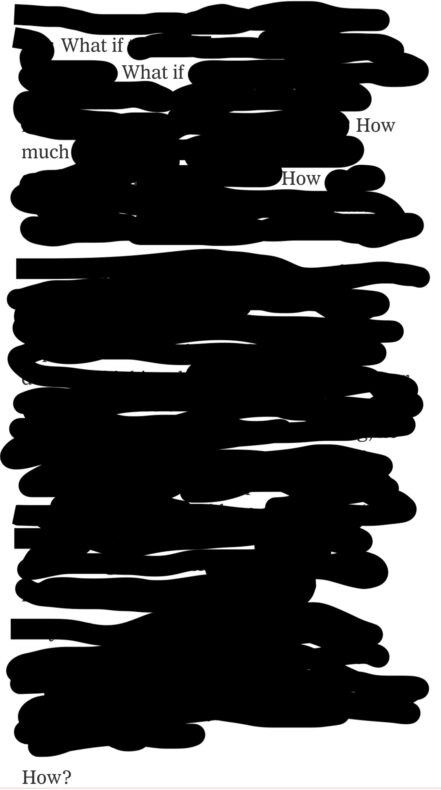
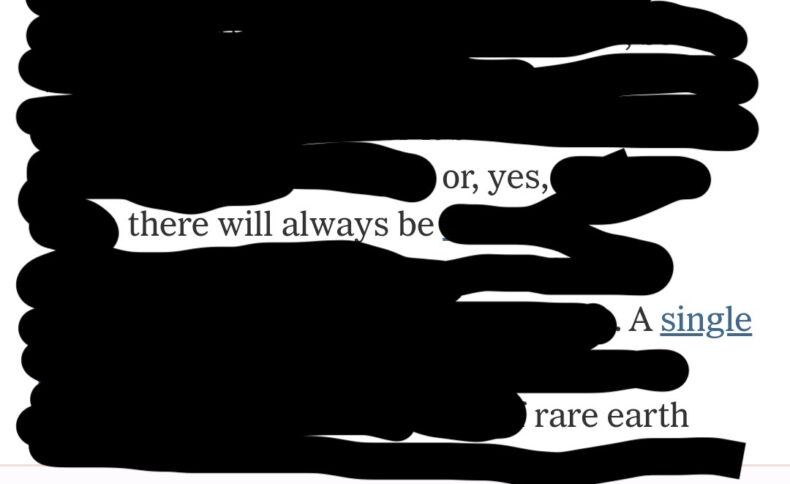

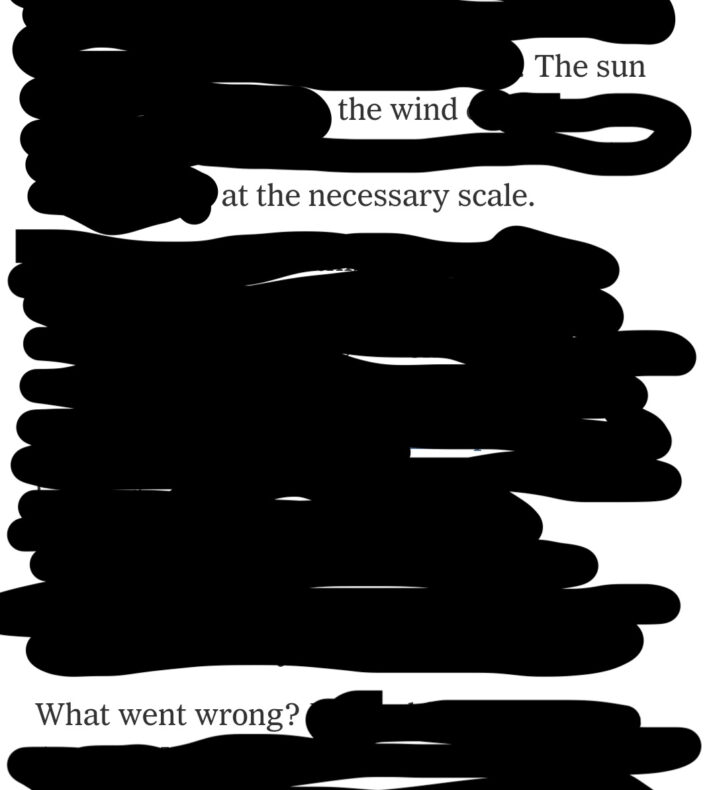
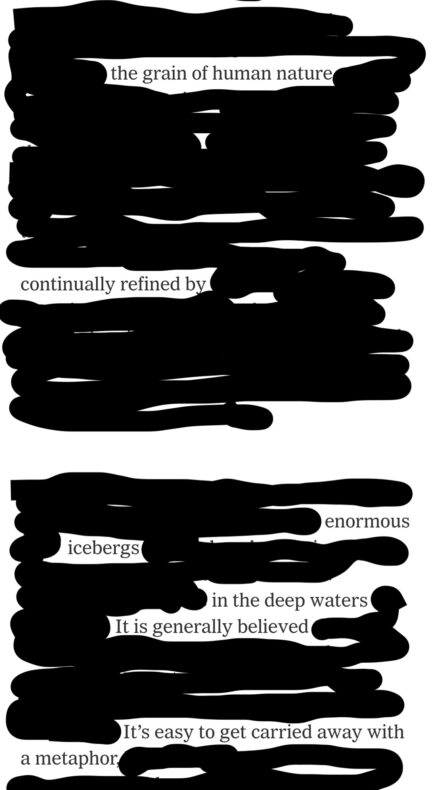
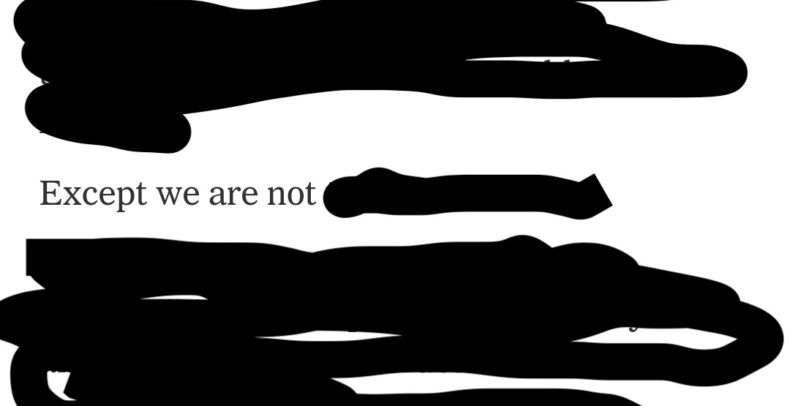
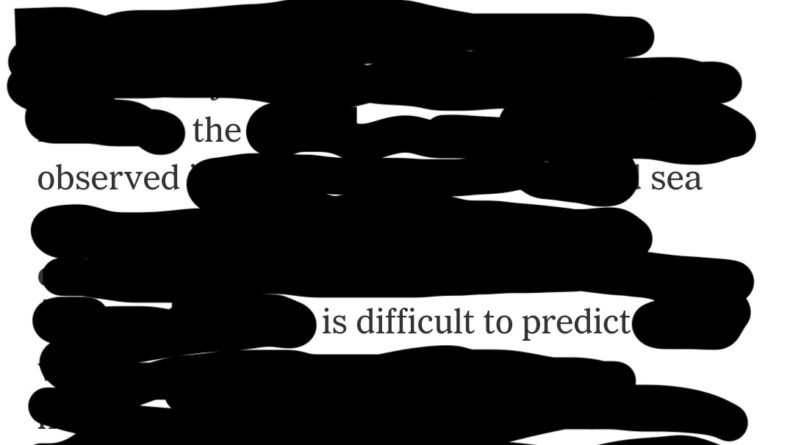
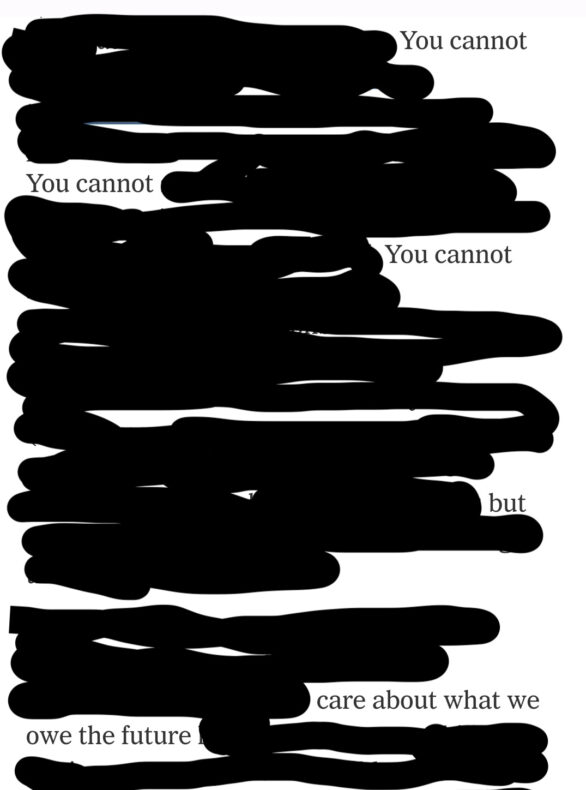
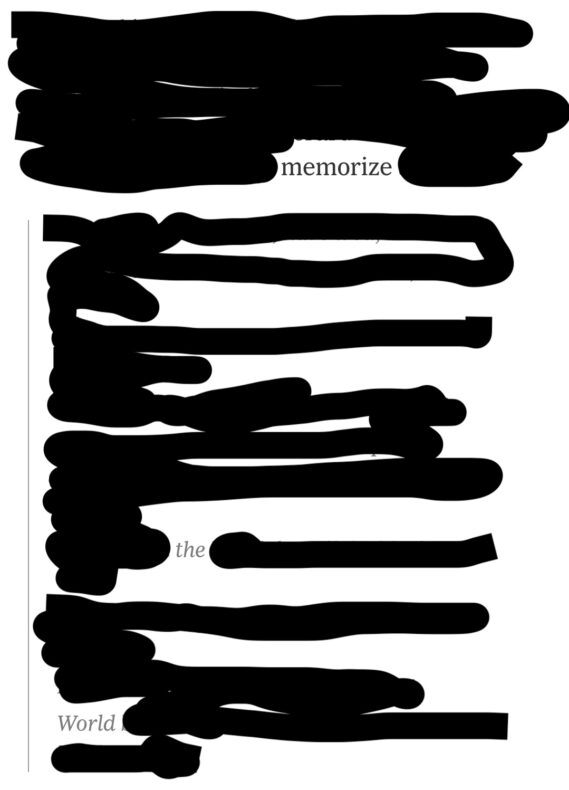
Sarah DeWeerdt is a freelance science journalist and poet based in Seattle. Follow her on Twitter.
Remarkable transformation of a piece on climate change to a gutting poem. I’ve been disappointed by some of the NYT’s recent writing on climate change. This poem does far more justice to the issue.